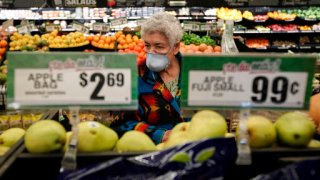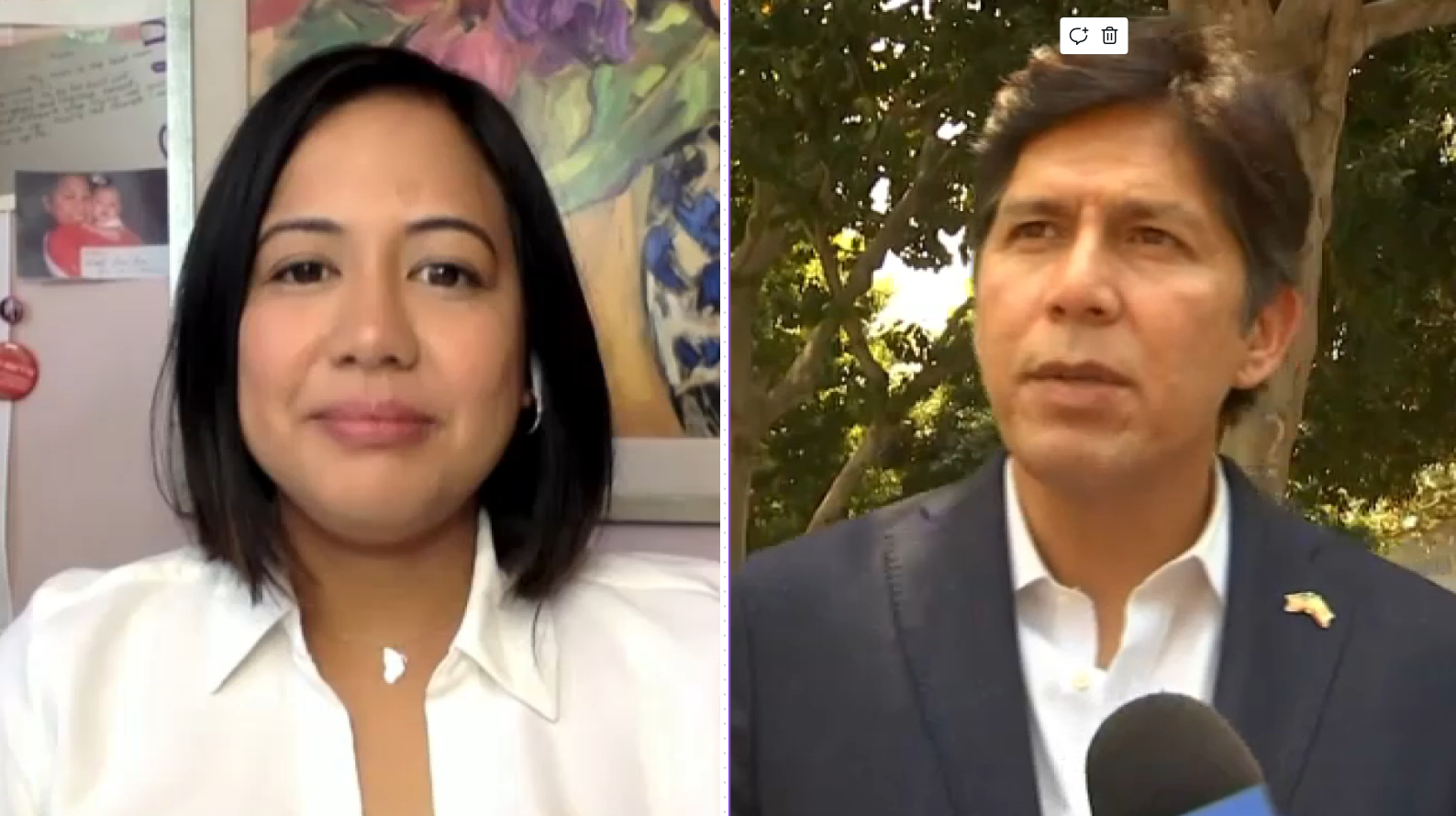
California restaurants will get taxpayer money to feed millions of seniors during the coronavirius pandemic, but only if they can offer meals with fresh fruit, vegetables and no sugary drinks.
Gov. Gavin Newsom said Friday the requirements reflect California’s values, though lawmakers have repeatedly failed to impose special taxes and require warning labels for sugary drinks in the past.
“We want to ... have a diversity of options and make sure what we are sending to our seniors is low sodium and not high-fructose drinks or sugary drinks and the like,” Newsom said.
California has been under a mandatory stay-at-home order since March 19, forcing schools and nonessential businesses to close. Restaurants have been one of the hardest-hit industries in the state, with more than 1 million workers either laid off or furloughed, according to a survey by the National Restaurant Association.
Local governments will choose which restaurants will make the food and get the money. But restaurants have to meet nutrition guidelines. Meals can’t have too much sodium and lunch and dinner must have at least one piece of fresh fruit or vegetable.
Jot Condie, president and chief executive officer of the California Restaurant Association, said he believes restaurants can adapt to the requirements.
“We are aware that it’s a sensitive subpopulation that has special dietary needs and I think that it may not be for every restaurant,” he said, adding that: “We have fielded a crush of phone calls from restaurants eager to participate.”
Local
Get Los Angeles's latest local news on crime, entertainment, weather, schools, COVID, cost of living and more. Here's your go-to source for today's LA news.
Newsom said the federal government will cover 75% of the cost while the state and local governments will pay for the rest.
To be eligible, seniors must either live alone or live with one other person who is also eligible. They can’t earn more than $74,940 per year (or $101,460 for a household of two) and they must have documented exposure to the coronavirus. Anyone already getting money from other federal food programs would be ineligible.
California has about 5.7 million people 65 and older, of which about 1.2 million live alone. A qualifying senior will get up to $66 per day for three meals at local restaurants that meet certain criteria.
“We will provide an unlimited number of meals," Newsom said.
While taxpayers will pay for the food, local sales taxes will still apply. That could be a boon to local governments, which have suffered as sales tax collections have dried up with few people out spending. The League of California Cities says local governments will lose an estimated $6.7 billion over the next two years because of the coronavirus.
Jon Coupal, president of the Howard Jarvis Taxpayers Association that favors lower taxes and smaller government, said he supports Newsom's initiative provided it includes necessary oversight to guard against abuse.
“Assuming that they are careful with the way that the money is spent, and making sure that nobody is getting wealthy or that people are receiving the meals they could have afforded to easily purchase themselves, our sensibilities are not insulted by that,” he said.
California has more than about 40,000 confirmed virus cases and more than 1,500 deaths, according to data compiled by Johns Hopkins University. The number of infections is likely much higher because many have not been tested, and studies suggest people can be infected without feeling sick.
Newsom has said hospitalizations and patients in intensive care units are key statistics for deciding when to loosen stay-at-home orders. Both numbers have been essentially flat for much of the week.
For most people, the virus causes mild or moderate symptoms, such as fever and cough that clear up in two to three weeks. For some, especially older adults and people with existing health problems, it can cause more severe illness, including pneumonia and death.
That's why Newsom said the stay-at-home orders will likely last longer for people 65 and older.
“Our seniors will continue to be a focus of our energies,” Newsom said.



